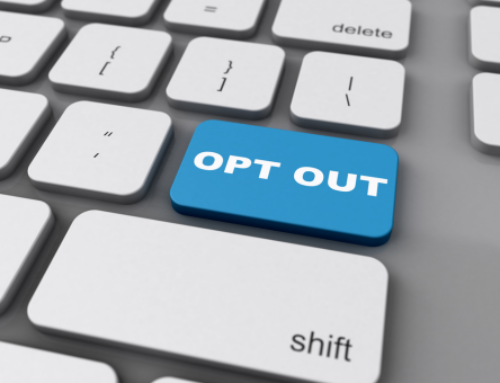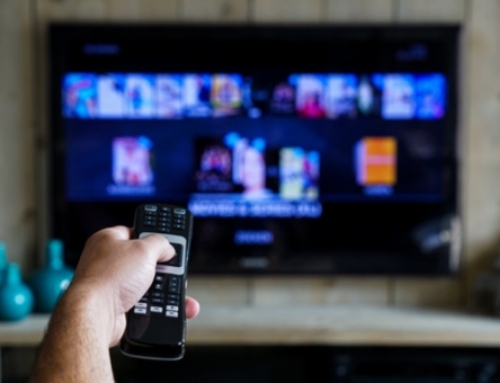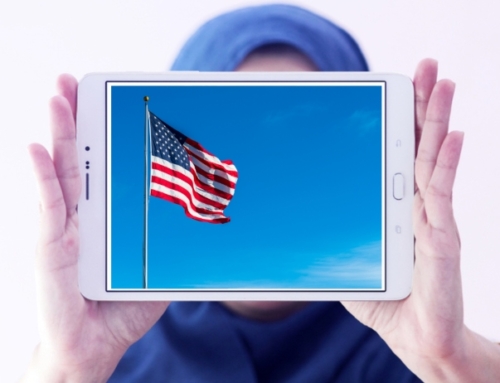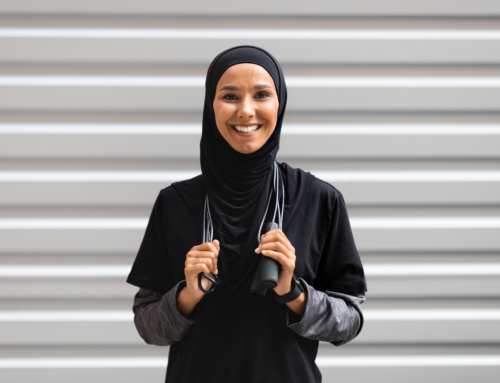By: Wendy Díaz
A Journey of Belief, Equality, and Unseen Creator
When I was 17 years old and a senior in high school, my father and I were escorted out of a Christian church because of the color of our skin. It was one of the most humiliating and hurtful situations I have ever experienced. However, it was something that solidified my belief in Islam, its teachings of One Unseen Creator unlike His creation, and its perfect justice and equality.
How Relocating to Georgia Tested My Faith
My family and I had moved from Maryland to Georgia. My father, a veteran in the armed forces, was stationed at Fort Gordon, the military base southwest of the city of Augusta. This relocation came as a shock to me because we had only been in Maryland for a year, and I would be entering 12th grade in a new school. Unlike the rest of my class, who knew each other, had taken classes and passed grade levels together eagerly awaiting graduation, I was an outsider. More than ever, I needed to rely on my faith to make it through a depressing time.
From Catholicism to Exploring Islam
Prior to moving, I attended a non-denominational Christian church with regular Bible study on Wednesdays and worship on Sundays. I was raised as a Catholic in Puerto Rico, but I became disenchanted with Catholicism for many reasons. After my father joined the military and we traveled throughout the U.S., I eventually left the Church altogether. It was not until my junior year in high school in Maryland that I agreed to attend a new church with a friend. That same year, I was also introduced to Islam by an Egyptian friend whose family was Muslim. I observed how they dressed and worshipped and asked many questions about their beliefs, although I continued to go to church regularly.
A Quest for Spiritual Community
Once we relocated, I made it a priority to find a church in the area. My father used to drive me to and from school every day and during my 20-minute ride, I noticed a church right off the main road close to our house. It was a simple, tanned brick structure with clay colored shingles on the roof. Next to it, on the other side of the parking lot, stood what looked like another smaller church with white wooden walls and a gray roof. It seemed to be abandoned and I guessed it may have served the same congregation and been replaced by the newer building nearby.
A Painful Rejection at the Church Doorstep
I asked my father if we could go visit the church on the following Sunday, and although he did not share my enthusiasm, he agreed. When the day came, we got dressed up and headed there. When we arrived, we saw cars parked in front of the building and it seemed that the service had already started. We walked up a few steps and slowly opened the door, peeking in discreetly. The pews were packed with worshippers with their backs to us looking towards the end of the room where the pastor stood. A gentleman seated a few rows away from the doorway turned and saw us standing at the entrance and immediately stood up and walked towards us. I was relieved to see him approaching thinking he would help us find a seat. What happened next is something I will never forget for the rest of my life.
Unwelcome at the Church Doorstep
Instead of welcoming us, the gentleman said with a thick country accent, “If you’re looking for the Black church, it’s over there,” pointing to the outdated white structure across the parking lot. I vaguely remember croaking out a bewildered “What?” Again, the heavyset white man before us said, very matter-of-factly, “If you’re looking for the Black church, it’s over there.” By this time, the entire congregation was looking back at us, a sea of white faces with inconvenienced expressions. My father simply responded, “Ok,” and he grabbed my hand and held it tightly as we stumbled out of the church and headed across the parking lot. The white gentleman followed us out, and again pointed out the abandoned white building. We waved him away and nodded, still unable to speak. I looked at my father, with his brown, Puerto Rican café con leche complexion, and I wondered if the congregants thought he was African American or if they could tell we were Hispanic. Either way, we were not welcome. We were not white. We were not worthy of worshipping a white god next to white strangers.
Confronting Discrimination and Identity
I wondered if they cared that my father was a war veteran, and a son of a war veteran, who both sacrificed their lives for the country people call “The Land of the Free.” I thought about my grandfather back home in Puerto Rico, and his beautiful chocolate skin, darker than my father’s, and his caramel eyes. I thought about myself, a mixed Boricua, the product of European, African, and indigenous ancestors. I may not be as dark as my father and grandfather, but I am still visibly Latina, and always proud of where I came from. It was not the first time I had encountered prejudice, but I had never been barred from a place because of the color of my skin. My disbelief turned to anger and then I felt sick to my stomach.
Embracing Islam’s Teachings
My father decided that we should visit the “Black church,” as the racist had suggested. I was hesitant, already convinced, as I had been before, that church was not for me. Aside from the aspects of doctrine that I disagreed with, I also believed there were some inconsistencies in the theological practice within the Christian church. I never understood why Christians allowed depictions of god, Mary, Jesus, and other prophets, when in the Bible the worship of idols was prohibited. I did not even believe in Jesus as god, and I did not believe God looked like a man. Little did I know at this point in my life, that what I believed was remarkably similar to the teachings of Islam.
Journey from Prejudice to Embracing True Faith
We walked towards the other building with our heads high, and when we slowly opened the door, we were welcomed by the only family that was there. It was an African American husband and wife with their children; the husband was the pastor. The church was just as simple on the inside as it was on the outside. We introduced ourselves and explained to the family what had happened at the other church. They shook their heads and said, “Well, you are welcome to stay here with us.” We sat and listened to the sermon, but both my father and I no longer felt comfortable. Once we got in the car and headed home, we both said, “Never again!” Both of us believed in God’s existence, but we knew our faith was beyond the walls of a building. We vowed not to look for another church. In many ways, the white man that ushered us out of the racist church, led me out of the religion of Christianity for good.
Embracing the Concept of the Unseen God from the Qur’an
After some time, I got in contact with my Muslim friend, and I visited her family often. During our encounters, I continued asking questions about their faith until I finally got a hold of some literature on Islam. One of the things that interested me the most was the idea of an Unseen God who was unique from His Creation. Chapter 112 in the Qur’an states,
“Say: He is Allah, the One and Only; Allah, the Eternal, Absolute; He begets not, nor is He begotten; And there is none like unto Him.”
Challenging Beliefs About God’s Image and Finding Equality in Diversity
These simple verses summarized what I already believed about the fundamental nature of God, and they debunked the myth that God “created man in His image” or that Jesus was God or the son of God. In Islam, images and statues of God and prophets are strictly forbidden. Christian beliefs about God’s image and the many depictions of a white god with blonde hair and blue eyes are problematic because they fuel racism and white supremacy. Perhaps these attitudes are what drove the white man at the “white church” to kick us out simply because we looked different. When I visited a mosque for the first time what I saw was extraordinary – people from all walks of life, of various colors and ethnicities, facing the same direction, praying foot to foot and side by side to the same God. I immediately knew this is the true path, one of equality, justice, and submission to the Creator of all.
Wendy Díaz is a Puerto Rican Muslim writer and the Spanish content coordinator for ICNA-WhyIslam. She is also the co-founder of Hablamos Islam, a non-profit organization that produces educational resources about Islam in the Spanish language.
Got Questions?
We have Answers. Get in touch now.








